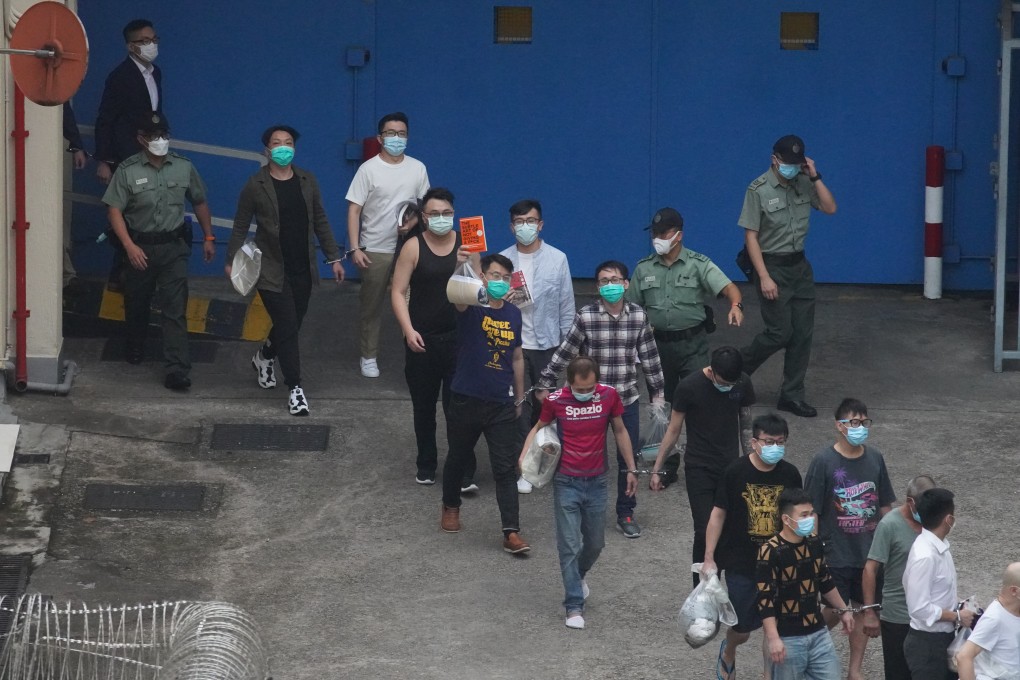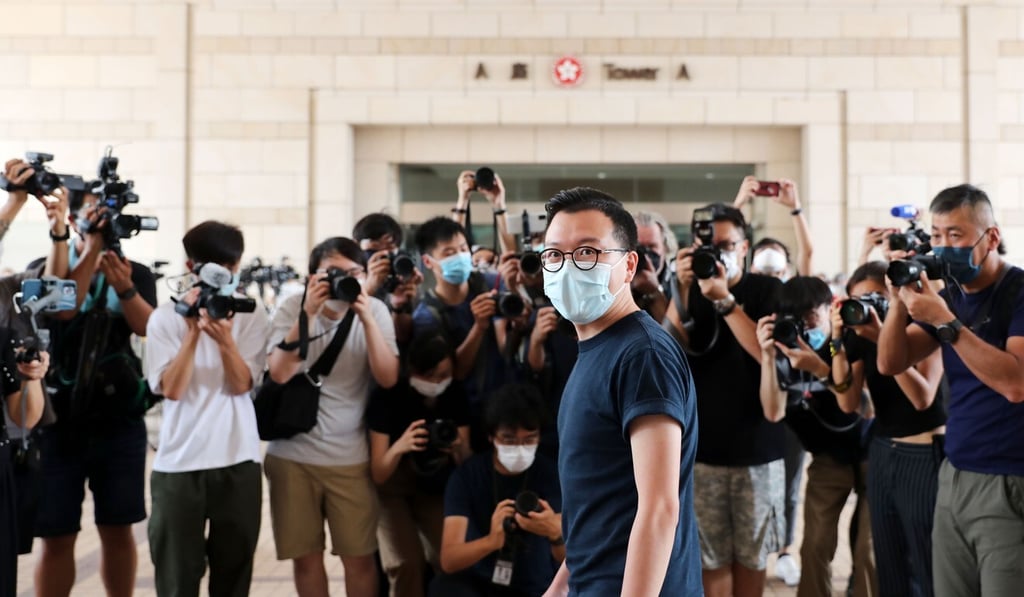Advertisement
National security law: 47 Hong Kong opposition figures charged with subversion facing potential life sentences after trial moved to High Court
- Defence lawyers at Monday hearing fail to convince Chief Magistrate Victor So to first establish what prosecutors must prove in order to obtain a guilty verdict
- It has yet to be determined if the trial, moved to the higher court at the prosecution’s request, will involve a jury or if the public and journalists will be allowed to attend
Reading Time:3 minutes
Why you can trust SCMP

Forty-seven Hong Kong opposition figures charged over their roles in an unofficial primary election last July are now facing the possibility of life in prison after a magistrate granted prosecutors’ request to move their trial to the High Court, where no cap on sentencing applies.
Chief Magistrate Victor So Wai-tak on Monday also rejected a request by defence lawyers that the lower court first establish what prosecutors must prove to obtain a guilty verdict on subversion charges brought under the city’s sweeping national security law.
That, he said, was more appropriately left to the High Court judge or judges who would preside over the group’s trial.
Advertisement
The prosecution has yet to indicate whether it will move forward with a jury trial, or if journalists and members of the public will be allowed to attend future proceedings

Advertisement
The 47 politicians and activists’ return to West Kowloon Court on Monday came nearly three months after they were first charged over an alleged conspiracy to subvert state power.
Advertisement
Select Voice
Select Speed
1.00x